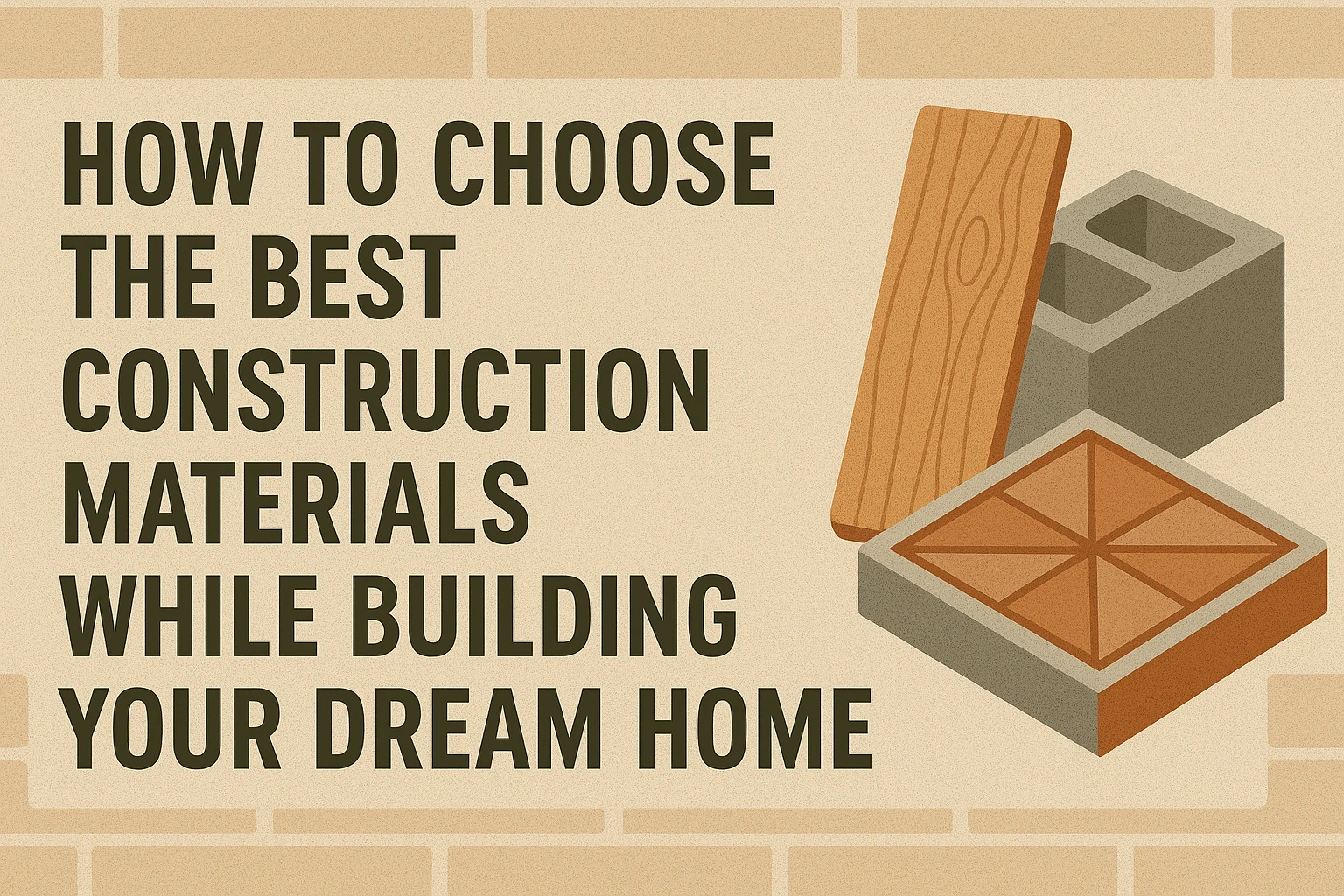Building your dream home is likely one of the biggest investments you’ll make in your lifetime. While the layout and design often steal the spotlight during planning stages, the construction materials you choose will ultimately determine your home’s durability, comfort, and long-term value. Making informed decisions about these materials can be the difference between a house that stands strong for generations and one that requires constant repairs and maintenance.
Starting With The Foundation: Cement And Concrete
Your home’s foundation is quite literally what everything else rests upon, making it perhaps the most critical material choice you’ll make. The right cement and concrete mix provides the strength and stability your home needs to withstand decades of use and environmental forces.
When selecting cement, consider factors like your local climate, soil conditions, and the specific structural requirements of your home design. ACC Cement is one of the leading cement companies that offers various grades of cement suitable for different applications, from foundations to decorative elements.
For foundations and structural elements, look for high-grade Portland cement that meets relevant quality standards. The concrete mix ratio is equally important. Work with your contractor to ensure the proper proportions of cement, sand, aggregates, and water for maximum strength and durability.
Wall Construction: Exploring Your Options
The walls of your home serve multiple functions. They provide structural support, insulation, sound barriers, and define your living spaces. When selecting materials for your walls, consider these popular options:
Bricks and Blocks
Traditional clay bricks have been used for centuries, but modern alternatives like ACC Green Bricks offer superior benefits. These eco-friendly cement bricks provide excellent strength while protecting against seepage and efflorescence. Their uniform size and shape also speed up construction time.
ACC’s Green AAC Blocks are another excellent option, providing fire resistance and sound-proofing qualities that create a peaceful home environment. Their lightweight yet strong composition makes them easier to work with while maintaining structural integrity.
Structural Frame
For the structural frame, reinforced concrete or steel are common choices. Reinforced concrete offers excellent durability and fire resistance, while steel provides strength with less weight. Your architect can recommend the best option based on your home’s design and local building codes.
Roofing: Protection From Above
Your roof is your home’s first line of defense against outside environmental forces, making material selection particularly important. Consider these factors when making the construction materials list for roofing:
-
- Local climate and typical weather patterns
- The architectural style of your home
- Long-term maintenance requirements
- Energy efficiency (especially important in hot climates)
- Initial cost versus lifespan value
Flooring: The Surface You Live On
Flooring materials need to withstand constant foot traffic while contributing to your home’s comfort and style. Your choices will likely vary from room to room based on functional needs:
For high-moisture areas like bathrooms and kitchens, ceramic or porcelain tile flooring provide water resistance and easy cleaning. Living spaces might benefit from the warmth of engineered wood or the durability of stone flooring. Concrete flooring is also becoming increasingly popular.
Remember that your subflooring materials are just as important as the visible surfaces. Quality concrete subflooring creates a stable, level base for whatever finishing materials you choose.
Making Sustainable Choices
Sustainable choices extend beyond just the environmental impact of production. You must also consider also the energy efficiency of materials, their longevity, and whether they can be recycled at the end of their useful life. Materials that require minimal maintenance or replacement over time often prove more sustainable in the long run. ACC’s Green Bricks and AAC Blocks give you eco-friendly construction without sacrificing performance.
Balancing Quality And Budget
While it’s tempting to cut costs on construction materials, remember that your home is a long-term investment. Higher-quality materials often pay for themselves through:
-
- Extended durability and lifespan
- Reduced maintenance and replacement costs
- Lower energy bills through better efficiency
- Increased property value
That said, not every area of your home requires premium materials. Work with your architect and contractor to identify where quality matters most (structural elements, moisture-prone areas, high-use features) and where standard materials will serve adequately. You can make use of a home building cost calculator to estimate your budget.
Conclusion
Choosing construction materials for your dream home involves balancing immediate costs against long-term performance, aesthetic preferences against practical considerations, and traditional options against innovative alternatives. By understanding the role each material plays in your home’s overall performance, you can make informed decisions that will benefit you for decades to come.
Remember that quality materials like those offered by ACC Cement form the foundation, both literally and figuratively, of a home that remains safe, comfortable, and valuable throughout its lifetime. Invest the time to research and select the best materials for your specific needs, and you’ll enjoy the returns on that investment every day you spend in your dream home.



